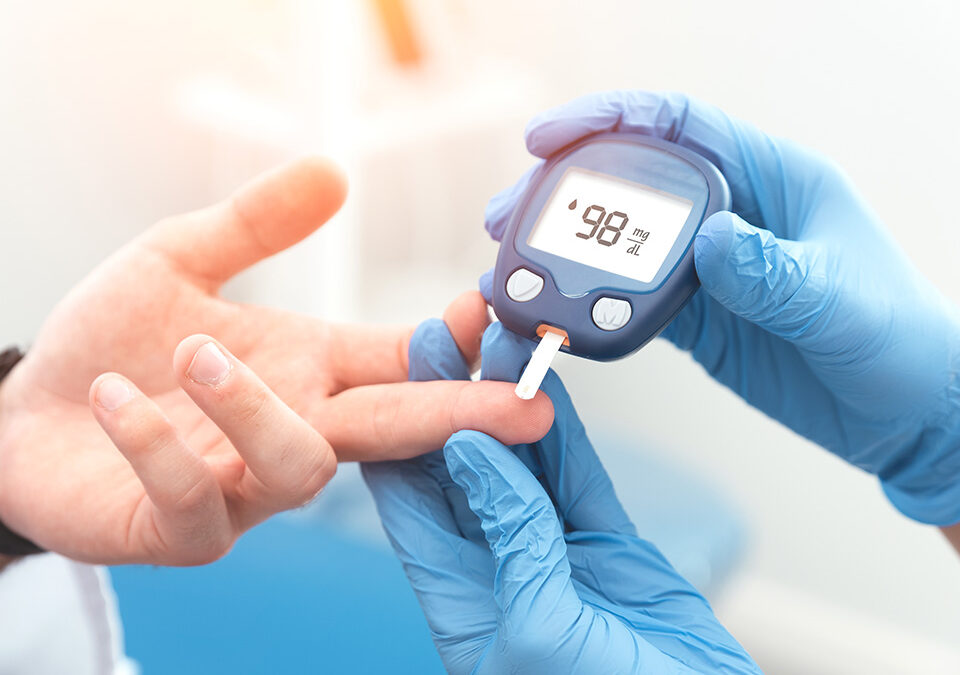
The Connection Between Erectile Dysfunction and Diabetes
April 27, 2021
What Is The Connection Between Diabetes And Bad Breath?
April 28, 2021Types of Diabetes: Everything about Type 1, Type 2 and Gestational Diabetes
Diabetes is a chronic disease in which blood sugar levels are elevated. The condition develops when the pancreas stops producing insulin or when the body can no longer use insulin efficiently. As insulin is used to metabolize blood sugar for energy, this leads to a buildup or increase of glucose in the blood, eventually resulting in diabetes. However, it’s important to note that there are different types of diabetes. There are three main types including Type 1 diabetes, Type 2 diabetes and gestational diabetes.
Type 1 Diabetes:
What is Type 1 Diabetes?
This type of diabetes occurs when the body stops producing insulin because the immune system has destroyed the insulin-producing cells in the pancreas. Type 1 diabetes is not very common, but typically develops in children and teens.
What are the symptoms of Type 1 Diabetes?
The symptoms of Type 1 diabetes are no different to those in Type 2 diabetes, including increased hunger, increased thirst, fatigue and tiredness, increased urination and unusual weight-loss. Some people may also experience blurred vision and unhealed sores. However, symptoms in Type 1 diabetes develop rapidly and can worsen within a short period of time.
What are the causes of Type 1 Diabetes?
The main causes for Type 1 diabetes are still not clearly understood. Researchers are still trying to find out why the immune system attacks its own cells and stops the production of insulin. However, it is widely believed that genetic and environmental factors, including exposure to certain viruses may cause Type 1 diabetes.
What are the risk factors involved in the development of Type 1 Diabetes?
Type 1 diabetes is not associated with modifiable risk factors like lifestyle, diet or obesity. Instead, genetic or hereditary factors play a role and people with a family history of diabetes, especially children are at a higher risk. .
What is the treatment of Type 1 Diabetes?
Type 1 diabetes is classified as a chronic condition for which there is no known cure. As the body needs insulin to function properly, treatment usually involves regular administration of insulin through injections or pumps.

Type 2 Diabetes:
What is Type 2 Diabetes?
This type of diabetes occurs when the body develops insulin resistance. In this condition, the pancreas produces less insulin or insulin is no longer used efficiently, resulting in a higher level of blood sugar in the body. This is the most common type of diabetes across the world.
What are the symptoms of Type 2 Diabetes?
The symptoms of Type 2 diabetes are the same as those of Type 1 diabetes, including increased thirst, increased hunger and urination, fatigue and tiredness, etc. However, the symptoms in Type 2 diabetes take a longer time to develop and can go undetected for years.
What are the causes of Type 2 Diabetes?
Excess weight, obesity and physical inactivity are the main causes of Type 2 diabetes. However, genetic and environmental factors may also increase the risk of this disease.
What are the risk factors involved in the development of Type 2 Diabetes?
Having a family history of diabetes increases the risk of developing the disease. Middle-aged people with excess weight or a physically-inactive lifestyle are more vulnerable to Type 2 diabetes.
What is the treatment of Type 2 Diabetes?
Diet and lifestyle modifications are regarded as essential in the management of type 2 diabetes, but medications may also be prescribed to control the condition.
Gestational Diabetes:
What is Gestational Diabetes?
Gestational Diabetes occurs in pregnant women. During pregnancy, either the body does not produce enough insulin or the insulin is not used efficiently. In either case, it leads to an increase in levels of blood sugar. It is also a form of insulin resistance.
What are the symptoms of Gestational Diabetes?
There is no specific set of symptoms for gestational diabetes. People with gestational diabetes generally experience the same symptoms that are associated with Type 1 or Type 2 diabetes.
What are the causes of Gestational Diabetes?
During pregnancy, hormonal changes and weight gain can affect insulin production as well as insulin sensitivity, causing an increase in blood sugar levels.
What are the risk factors involved in the development of Gestational Diabetes?
There are no specific risk factors for developing gestational diabetes. However, a family history of diabetes, excess weight, or a physically inactive lifestyle may increase the risk. People with a history of miscarriages and polycystic ovary syndrome (PCOS) are also at a higher risk of developing the condition.
What is the treatment of Gestational Diabetes?
Usually, lifestyle changes including diet and physical activity are the main recommendations. However, medication or insulin injections may also be prescribed, depending upon the severity of the condition.
References:
- https://www.cdc.gov/diabetes/basics/gestational.html
- https://www.cdc.gov/diabetes/basics/type1.html
- https://www.cdc.gov/diabetes/basics/type2.html
- https://medlineplus.gov/ency/article/001214.htm
- https://www.webmd.com/diabetes/guide/types-of-diabetes-mellitus
- https://www.niddk.nih.gov/health-information/diabetes/overview/what-is-diabetes
- https://dtc.ucsf.edu/types-of-diabetes/




